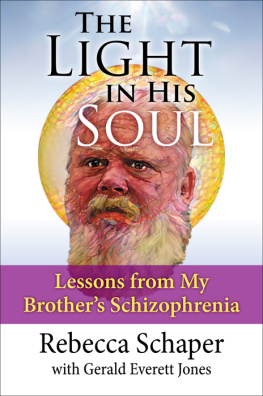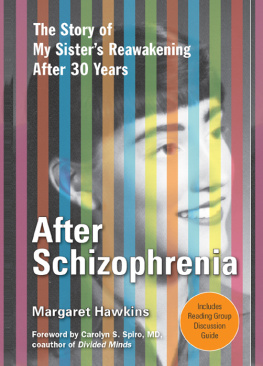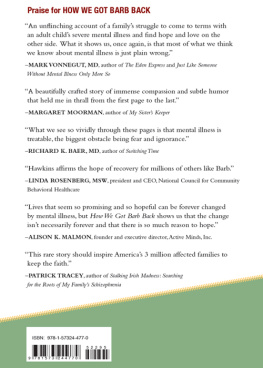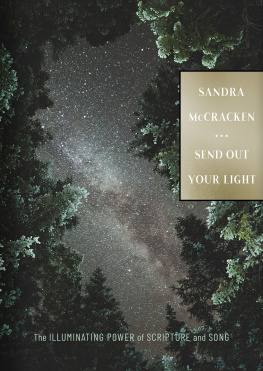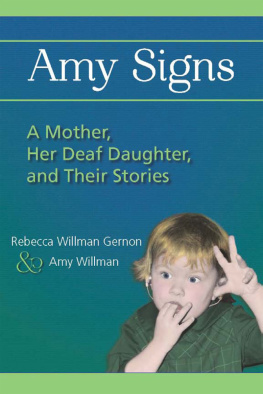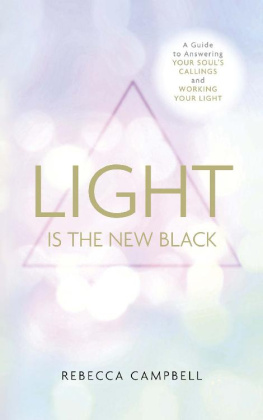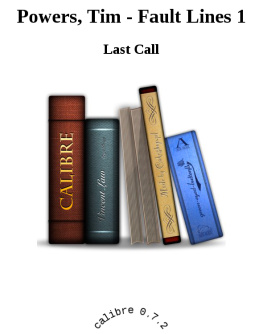
Copyright 2018 by Rebecca Schaper
All rights reserved. No part of this publication may be reproduced, distributed, or transmitted in any form or by any means, including photocopying, recording, or other electronic or mechanical methods, without the prior written permission of the publisher, except in the case of brief quotations embodied in critical reviews and certain other noncommercial uses permitted by copyright law. For permission requests, contact the publisher.
GreyHawk Media
3000 Old Alabama Road, Suite 119
Alpharetta, GA 30022
www.rebeccaschaper.com
Kindle ISBN: 978-0-9992771-2-6
EPUB ISBN: 978-0-9992771-3-3
Library of Congress Control Number: 2017952089
Portions of this memoir are based on the documentary film A Sisters Call (2012) by Rebecca Schaper co-produced and directed by Kyle Tekiela (Tekiela Creative) for GreyHawk Films in association with Kartemquin Films. Photos in this book are adapted from the movie except as noted below.
Photo of Kim in chapter 16: Courtney Buchanan
Photo of Lauren in chapter 18: Gabe Simpson
Photo of the author: Marion Yarger-Ricketts
Copyeditor: Robin Quinn, Quinns Word for Word
Proofreader: Mike Mollett
Cover and interior designer: Gary Palmatier, ideas-to-images.com
In Memory of Call
Beyond all I see through the eyes of my brother,
Call gave me the inspiration to write this book.
I N THE SOUTH, CALL IS NOT UNCOMMON AS A MANS NAME. It was my fathers and my brothers. Also in that part of the country, inspired Christians talk about receiving the calla call of duty, a call to actionan outright order from God. My brother Call Richmond Jr. was my call to action. He had been a cheerful but disturbed and misunderstood young man. One day not long after hed dropped out of his last year of college, Call ran away from home and disappeared.
I found him twenty years later. His paranoid schizophrenia was not yet formally diagnosed. I knew right away that it was up to me to get him whatever help he needed.
This is our story.
Rather, this is my memoir of caring forand learning fromCall.

As a societyas a community of law-abiding, cooperative citizenswe tend to think of mental illness as a disease to be managed, disruptive behavior to be minimized, perhaps even an embarrassment to be hidden away. (And there are still those who think of illness as Satans possession of the weak or the wicked.) The professional caregivers have trays full of drugs that, in clever combinations and dosages, may seem to be helpful. But, for the most part, todays pharmaceuticals suppress the symptoms but never heal the problemnor the hurtful effects on other people. The result might be acceptable to the community because the patient is now compliant and seemingly self-sufficient. However, the nightmare theyve been living is not extinguished. Their internal television showthe swirling perceptions and misperceptions in the mindhas just been temporarily switched off, or its volume control turned way down.
The average person rarely has reason to question perceptions that seem real. During our dreams, havent we all wondered whether were participating in a real event? But a hallucination is another thing altogether. Imagine being wide awake, reaching for a doorknob, and not knowing if its a real object or a figment of your obsessively creative mind. You reach out and grasp it. The feedback through the nerves of your hand, the coolness of the metal, and the hard slickness of its surface make you think its a real thing. You tighten your grip and turn it clockwise.
It is a real knob in a real door, the door to your bathroom. Youre standing there because the pressure in your bladder is giving you the routine message that you need to relieve yourself.
Understandand this might be difficult for you to take in at this pointyou know you cant trust your judgment. You seldom know whether your perceptions are real or hallucinatory. And yet you are intelligent enough to know that theres a difference. From moment to moment, you dont trust yourself. You dont trust your judgment about whether youre sane or ill.
You dont even trust your decision to open a door.
But, in this case, its a real handle on a real door to your own bathroom. And you decide to open it.
And on the other side of the door, you see an undulating carpet of insects or a nest of writhing snakes or the face of someone you dont recognize giving you a menacing look. Its not a horror movie, and you cant turn it off. Its the way you live, all day every day youre awake. Sometimes, you open the door and all you see is the commode full of feces you forgot to flush down. Other times, when you remember to take your meds, youre in a fog and you grope your way to the porcelain receptacle and you do your business like everyone else in town.
You summon your courage and walk back through that door.

Some family members and caregiversincluding certain medical professionalsassume that people with mental illness cant know the difference between hallucinations and reality. Thats true part of the time. The difference isnt always clear. There is that moment with your hand on the doorknob when all the boundaries of reality are blurred.
Nevertheless, some people who later present symptoms of mental illness may have had happy, clear-headed childhoods. My brother did. When things go wrong, these individuals know they have entered strange, dangerous territory. If they receive medicationand if it worksthey may feel safer for a while. At those times, treatment plans might seem to succeed, but all too often the effects are not lasting. In certain cases, brain chemistry may change to shake off the drug-induced dullness, as if the once-overactive mind was desperate to outwit the boredom. The patient might just decide to help the process along by forgetting to take some pills.
Absent the medication and at other unpredictable times, the illness may have other effectsincluding extraordinary visions, insights, or abilities. These effects can seem superhuman, even traits of genius. Imagine the thrill of living at that level. The brain seeks to sustain that high, but the intensity is unbearablewith or without moderating drugs. Eventually, patients will lose that energy and perhaps fall into a depression because their mellowed state is not at all exciting.
They may wonder what theyve done wrong to deserve such suffering.
We all wonder why misfortune strikes. Not necessarily what the afflicted person did wrong, but what flaw in us or in the scheme of things invites any manner of pain or suffering into our lives?

Calls illness was just one facet of my familys troubled history. Our mother, Mary Pennington Richmond, suffered from schizophrenia and committed suicide just before Call went missing. Our father, Call Richmond Sr., was a heroic World War II veteran who, to use the modern term for it, suffered from post-traumatic stress disorder (PTSD). Although Dad was outwardly a fully functional, even respected member of the community, he abused my mother emotionally and physically. And he secretly abused me emotionally and sexually. Years later, I was to learn hed also molested my oldest daughter Kim. No one in the family suspected it until, in her college years, Kim developed acute anorexia.
Eleven years after my mothers suicide, my father killed himself. Hed been remarried briefly, but he said in a suicide note that hed never been truly happy. And in that note, he hinted at his overwhelming sense of guilt for the bad things hed done.
Next page
